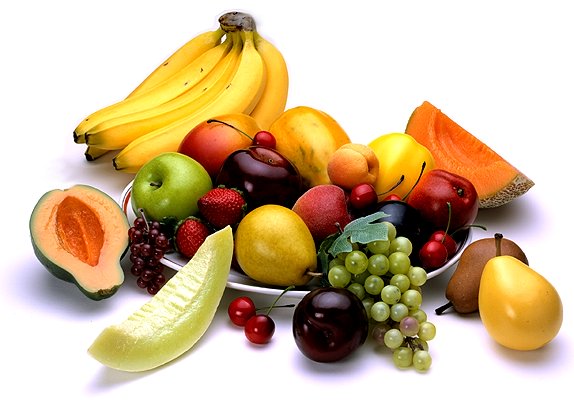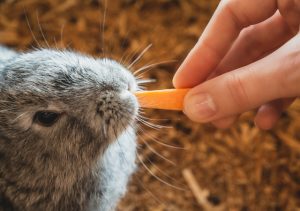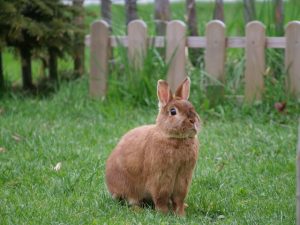Consuming the right food is vital in making sure that your pet is healthy. Given that your furry little friend is so adorable, it’s not uncommon to be tempted to spoil your companion with treats.
As a rabbit pet owner, understanding the unique digestive anatomy and physiology will guide you in putting together the best possible diet for your pet that. Such diligence will optimize their health and well-being as well as minimize the chances of being inflicted with common diet-related diseases.
The diet of rabbits should be made up of good quality pellets, fresh hay (timothy or other grass hays), water and fresh vegetables. Food items outside of the basic requirements are considered “treat” and should be given in limited quantities. It’s best to focus on what is really important and have a system of when treats and snacks will be provided.
Fruits
While hay and vegetables are the basis of a healthy diet, rabbits also enjoy treats. Fruits should not comprise more than 10% of a rabbit’s diet; that would be approximately 1-2 tablespoons per day.
When it comes to rabbits fruits are considered a treat because they are very high in natural sugars and when a bunny consumes too much, it can lead to obesity. At most, rabbits should be offered one or two tablespoons of fruit per day, and never any pits or seeds.
Other treats your rabbit might enjoy are apples (without stems or seeds), blueberries, papaya, strawberries, pears, peaches, plums, or melon. Extra-sugary fruits like bananas, grapes, and raisins are good too, but should be given on a more limited basis.
Here is a list of fruits, to be fed in moderation, which you can give your pet:
- Apple
- Apricot
- Banana (high in potassium)
- Blackberries (and leaves – excellent astringent properties)
- Blueberries
- Cherries
- Grapes
- Kiwi Fruit
- Mango
- Melon
- Nectarines
- Oranges (not the peel)
- Papaya
- Peaches
- Pears
- Pineapple
- Plums
- Raspberries (and leaves – excellent astringent properties)
- Strawberries (and leaves)
- Tomatoes (not the leaves)
As a side note, cartoon characters and other fictional rabbits like Bugs Bunny have portrayed carrots to be a favorite and healthy for rabbits. However, as much as most rabbits enjoy carrots, it is actually not a fruit. It is a very starchy vegetable and should only be given sparingly as a treat. A carrot should never make up a large portion of a rabbit’s diet. However, as the little animals really do love it, a few baby carrots each day is fine.
When feeding fruits, do not allow your pets to eat seeds or pits as this is poisonous and in order to be safe, unless stated it is more nutritious to leave the skin on the fruit (particularly if organic), just wash thoroughly. If you are worried about the source of the fruit, exposure to pesticides or chemicals, remove the skin all together.
If you are going to give a rabbit tomatoes, make sure to remove the leaves as this is harmful to your pet.
Just like humans, everything should be given in moderation. Take as much care in your pet’s diet as you would yours. So, while people limit their cake and ice cream intake,
you should also show restraint when giving your rabbit fruit.
It’s true that bunnies really do love sweets and may even become "addicted" to the sweet taste. This will make it difficult to bring them back to their normal herbivore diet if they’ve gotten used to the sweet taste. It will not hurt to provide one or two small treats a day can provide nutrients, enrichment as well as reward and happiness for your pet.
Foods to Avoid
Given their unique and sensitive digestive systems, pet owners need to know that there are a number of foods that rabbits should avoid eating. Some of these items include iceberg lettuce, tomatoes, cabbage, corn, beans, peas, potatoes, beets, onions, rhubarb, bamboo, seeds, grains, and many others.
As a reminder, you should not give your pet any chocolate, candy, anything moldy, as well as most human foods. If you are not sure about a certain food, ask your rabbit’s veterinarian. It’s better to be safe than sorry. It’s very simple, when it doubt, don’t.
When it comes to commercial treats, most pet stores will sell a variety of commercial rabbit treats. Your pet will be better off not having those because similar to humans, nutritious is always better. Most of the commercial products and “gourmet” treats are loaded with sugar and preservatives as well as flavoring chemicals and fat and typically over-processed. Fruits are natural, more nutritious, and less expensive.






